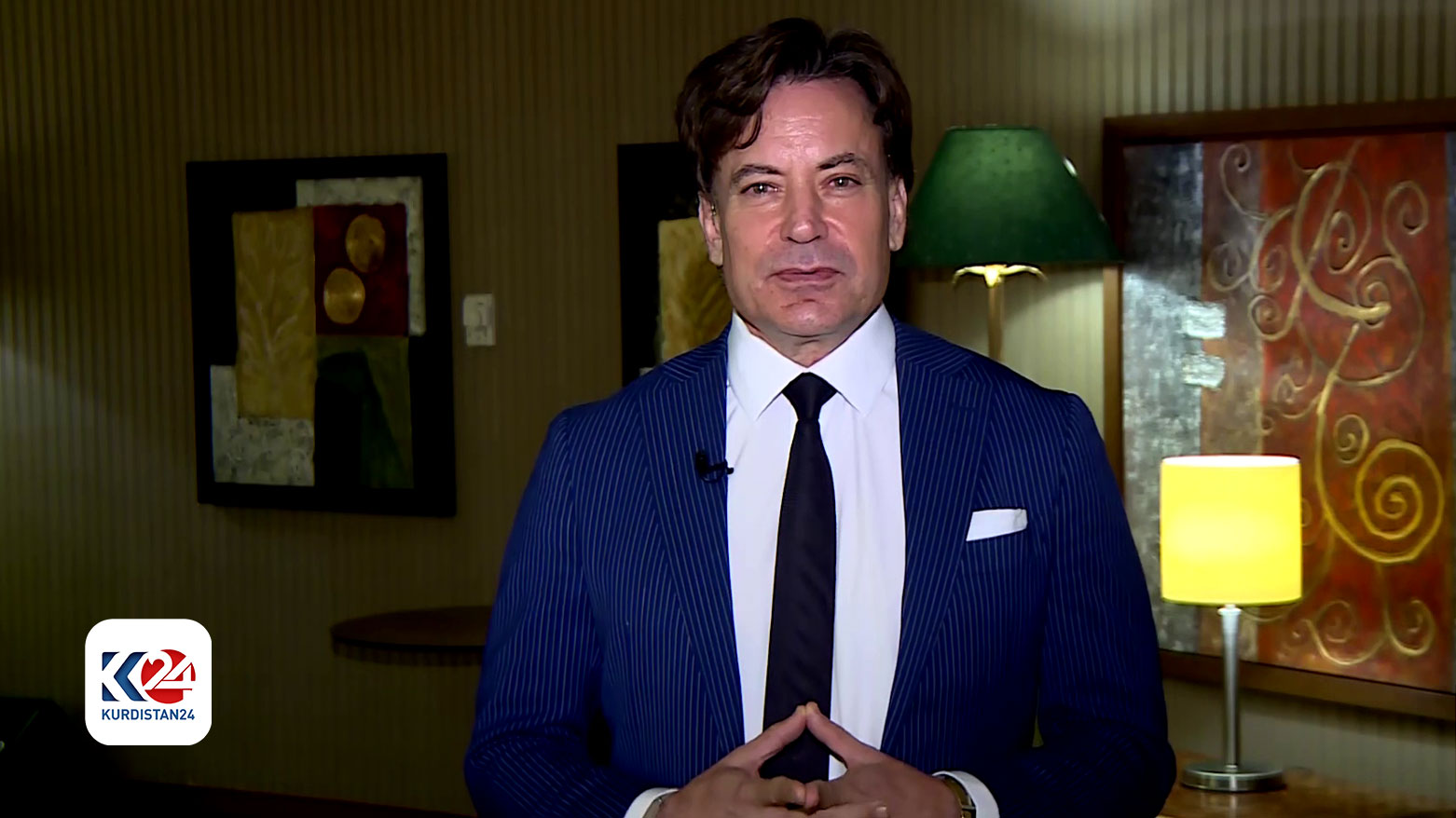Head of US-Kurdistan Business Council Hails Economic Development, Investment Opportunities in Kurdistan Region
“Every time I come back here, I see more development, more new buildings, new restaurants, new cafes, new stores, new car dealerships.”

Nov. 19, 2024
WASHINGTON DC, United States (Kurdistan 24) - David Tafuri, the head of the U.S.-Kurdistan Business Council (USKBC), spoke to Kurdistan 24, as he led a delegation of U.S. businessmen to Erbil.
Read More: PM Masrour Barzani, USKBC delegation discuss economic ties, oil exports
Tafuri described the economic development that has occurred in the Kurdistan Region which he has witnessed over more than a decade—and which continues.
Tafuri also stressed the Kurdistan Region’s political stability, as demonstrated most recently by the Region’s parliamentary elections—a point made by the U.S. Consul General in Erbil, when the USKBC met with him on this trip.
Although the Middle East is an unstable area, the Kurdistan Region is an island of stability. Companies doing business in Iraq, or in the Middle East more widely, can establish their headquarters in Erbil, Tafuri suggested, as Erbil develops as a “business hub.”
Economic Development/Investment Opportunities in Kurdistan Region
The U.S. overthrow of Saddam Hussein and his regime in 2003 established the basis for the development of the Kurdistan Region. Until then, the area was under a double set of sanctions.
It suffered from the U.S.-imposed sanctions on Iraq that followed the 1991 Gulf War and the failure of the George H.W. Bush administration to oust Saddam. In addition, Saddam imposed internal sanctions on the Kurdistan Region.
That certainly limited any economic development in the twelve years between the 1991 war and the 2003 war. Yet a number of senior figures have testified to the economic flourishing of the Kurdistan Region after 2003.
They include Sen. Tammy Duckworth (D-Illinois.) Duckworth served in the 2003 war, formally known as Operation Iraqi Freedom (OIF), as a Blackhawk helicopter pilot. She was badly injured, when her helicopter was shot down.
But an indefatigable spirit, Duckworth became a U.S. Senator, first elected in 2016. Three years later, in 2019, she led a Senate delegation to Iraq, which included a visit to Erbil. It was the first time that she had returned since the war. Back in Washington, she described the surprising developments.
“I think what the Kurds have been able to do, sets an example for the rest of Iraq,” Duckworth stated. “When I used to go up to the Kurdish Region, there was one fancy hotel on top of a hill and that was it,” she said, recalling the early days of OIF.
“We landed on a hillside and parked our helicopters and walked up to the one hotel.” Now, there are “high-rises, it’s gleaming, it’s modern”—in sum, “an international cosmopolitan city.”
And she compared the business environment in the Kurdistan Region to that of Iraq proper, describing it as much friendlier in Erbil than Baghdad.
Read More: Sen. Duckworth: Kurdistan is model for Iraq; ISIS not defeated
Tafuri described something similar, as he spoke to Kurdistan 24. “Every time I come back here [to Erbil], I see more development, more new buildings, new restaurants, new cafes, new stores, new car dealerships.”
“So the development pace of commercialization is very impressive—roads, the infrastructure are improving,” he continued. “Clearly, the government is putting investments into infrastructure,” and “these are things that impress us.”
Tafuri suggested two areas in particular that are well-suited for expansion. One is agriculture.
“I know that’s been a top priority of the Kurdistan Regional Government—to attract more investors in the agriculture sector,” he said. “And there’s great opportunity for the Kurdistan Region to advance in agriculture and to be, once again, a place that grows a lot of the food that Iraq needs.”
Tafuri also identified “a lot of opportunities in the minerals and mines sector.”
“Over the last few years, the need for critical minerals, for rare earth minerals, has increased, and many believe that the Kurdistan Region is a place that is not only rich in oil, but also in minerals, including rare earth minerals,” he said.
Political Stability of the Kurdistan Region
The economic development of the Kurdistan Region is based on a considerable degree of political stability, as evidenced in its recent history, including last month’s parliamentary elections.
Read More: Final Results: Complete breakdown of Kurdistan Parliament's Sixth Cycle Election Outcomes
“We are very happy that the Kurdistan Region had elections; that they were successful; and that they were viewed as free and fair by the international community,” Tafuri stated.
“We met at the U.S. Consulate with the U.S. Consul General earlier today,” Tafuri explained, “and he confirmed to us how important he believes it is that the Kurdistan Region successfully had elections, that this is an important benchmark for the stability and the political maturity of the Kurdistan Region.”
Some companies, long-time members of the USKBC “recognize that oftentimes the Kurdistan Region can be an oasis of stability and security” in the region, Tafuri added. “It can actually be an alternative to some other countries in the Middle East” that are impacted by regional tensions and unrest.
“You can headquarter your business here and be close to other areas in the Middle East,” he explained, “and so our hope is that Erbil will continue to progress to be a business hub.”